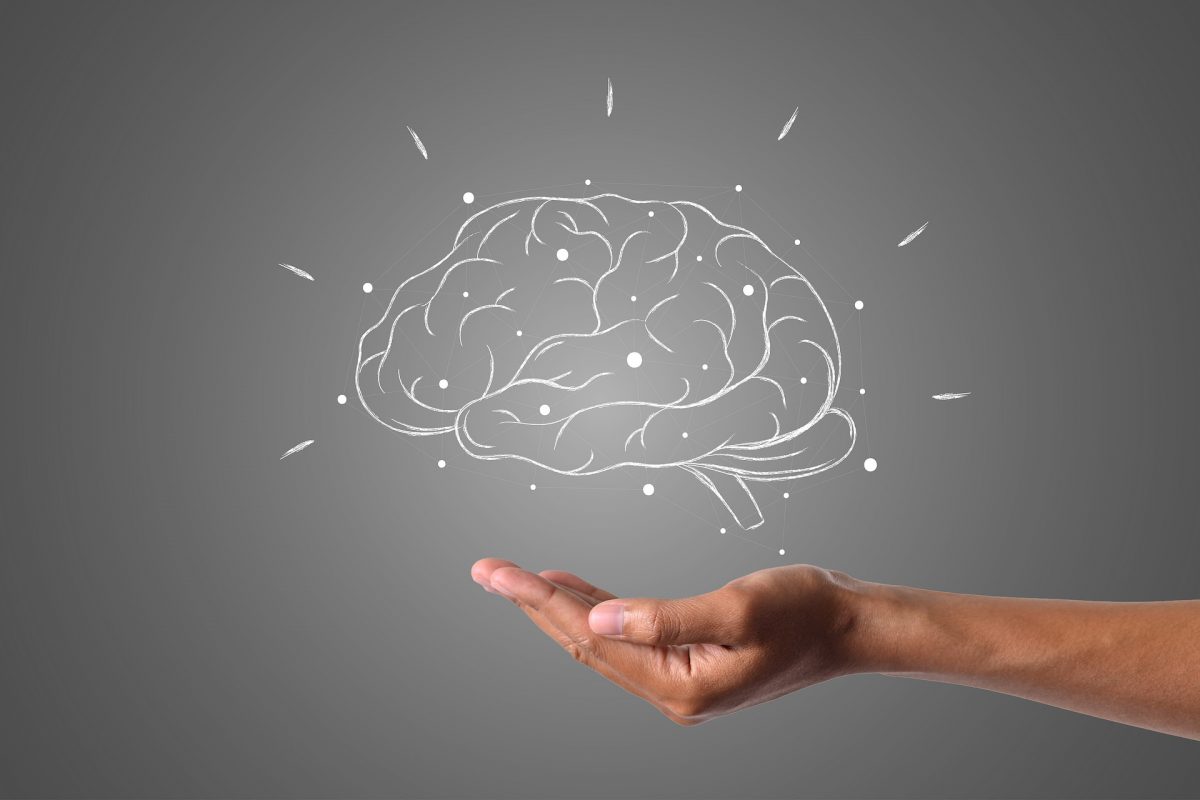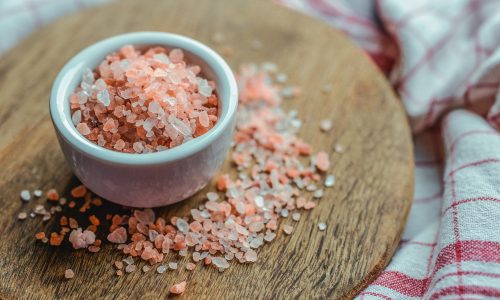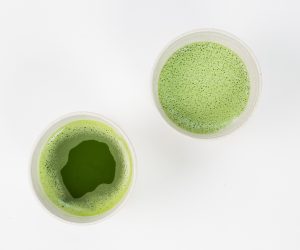
What Is Acetylcholine? Function, Benefits + Dosage of This Neurotransmitter
Jillian Levy, CHHC via Dr. Axe – If you’re familiar with nootropics supplements — supplements that are capable of helping increase alertness, attention, learning and memory — then you may have come across the compound called acetylcholine (or ACh). What is acetylcholine exactly?
As one of the most abundant and important neurotransmitters (or chemical messengers) in the body, acetylcholine plays a role in helping us focus, learn and memorize information. It’s also needed to support muscle contractions, help with arousal and sleep, and facilitate the release of other important chemicals, such as dopamine and serotonin.
While acetylcholine supplements are not available (similarly to how you can’t take dopamine supplements), there are certain nutrients you can take in supplement form to boost synthesis of ACh, as well as foods to include more of in your diet.
What Is Acetylcholine?
Acetylcholine (ACh) is a neurotransmitter and neuromodulator. This means it works by sending signals between nerves.
It’s made up of acetic acid and choline and is a part of the cholinergic system.
ACh is most well-known for supporting cognitive function, especially memory and attention. It was actually one of the first neurotransmitter scientists discovered.
Where is acetylcholine found? In humans it’s found in the central nervous system, which includes the brain and spinal cord, and the peripheral nervous system, which is the network of nerves located outside the brain and spinal cord.
Like other neurotransmitters (or chemicals that are released by neurons to send signals to other neurons), ACh is specifically found between nerve synapses (gaps between nerve cells).
Acetylcholine is synthesized in nerve terminals from acetyl coenzyme A (which comes from a form of glucose) and choline. Choline is a compound that you consume when you eat eggs, beef liver, poultry and some beans and nuts.
The more you consume of it, the easier it is for you body to produce enough acetylcholine.
How It Functions in the Body
What is the main role of acetylcholine? As a key neurotransmitter, it helps send signals to other cells, including neurons, muscle cells and gland cells.
It also modulates the release of other neurotransmitters, including dopamine, norepinephrine, and serotonin.
The network of nerve cells that use the neurotransmitter acetylcholine is referred to as the cholinergic system.
Some of the functions that acetylcholine has include:
- Stimulating skeletal muscles to contract.
- Inhibiting activation of the cholinergic system.
- Supporting neuroplasticity, specifically in the hippocampal and cortical regions. Neuroplasticity is defined as “the ability of the brain to form and reorganize synaptic connections in response to learning or experience.”
- Protecting against age-related declines in memory, including decline associated with Alzheimer’s disease.
- Supporting “executive functions,” which are considered higher-order cognitive processes. These processes are related to impulse control, planning, attention, decision-making and so on.
- Helping to guide vision-related attention.
- Regulating motivation, arousal and certain stages of sleep.
Health Benefits
1. Helps with Learning and Attention
Studies show that ACh is important for alertness, sustaining attention and mediating changes in the brain (including in the hippocampus and forebrain) that lead to learning and memory formation. One way it does this is by affecting the way that synapses send and receive feedback, enhancingdifferent types of “encoding” in different cortical structures of the brain.
2. Supports Memory
Emerging evidence also links cholinergic signaling with improved memory and even anti-inflammatory effects that impact how the brain creates and stores memories.
Research suggests that in people with Alzheimer’s disease, cholinesterase breaks down and destroys acetylcholine, leading to ACh dysfunction, which negatively impacts cognitive function in a number of ways.
According to Harvard Health Publishing:
the brains of people with Alzheimer’s disease have lower levels of acetylcholine than people without the disease, and the medications used to treat the early stages of the disease — donepezil (Aricept), galantamine (Reminyl), and rivastigmine (Exelon) — work by blocking an enzyme, cholinesterase, that dismantles acetylcholine.
3. Facilitates Muscle Contractions
ACh acts as a chemical that motor neurons in the nervous system release in order to activate muscles. At neuromuscular junctions, it allows for skeletal muscle contractions, which is essential for many functions, such as movement and coordination.
It can help promote contractions of smooth muscles, dilation of blood vessels, increased body secretions and a slower heart rate.
4. Helps Control Arousal and Sleep
Because it functions as a neuromodulator and impacts release of other calming and stimulating neurotransmitters, ACh is known to impact motivation, arousal, attention and energy levels.
ACh is believed to be involved in promoting REM sleep (rapid eye movement sleep cycles, which are necessary for restoration and learning and memory formation). And because it impacts our sleep cycles, it’s important for helping us feel alert when waking up.
Acetylcholine Dysfunction
“Anticholinergics” refers to substances that interfere with normal acetylcholine activity. When ACh pathways are deteriorated and start dysfunctioning, problems can arise that affect memory, motor control, moods and more.
This happens because certain nerves no longer receive signals like they are supposed to.
Symptoms and complications that can result from acetylcholine dysfunction include:
- Muscle weakness
- Poor memory and increased risk for Alzheimer’s disease
- Trouble controlling voluntary movements, including of the eyes and face
- In severe cases (typically caused by use of drugs), paralysis and convulsions, trouble breathing, and heart failure
What causes someone to have too little ACh?
There are a number of toxins and drugs, and even poison from plants and insects, that can interfere with ACh synthesis.
Drugs and substances that interrupt acetylcholine function can have negative effects on the body since they affect the heart, nerves, brain and muscles. In severe cases, symptoms and complications can even be deadly.
These drugs are capable of altering ACh levels and leading to symptoms as a result:
- Certain antibiotics (clindamycin, polymyxin)
- Magnesium
- Anticonvulsants
- Diuretics (furosemide)
- Calcium channel blockers (nifedipine, diltiazem)
Some health conditions can also disturb normal ACh synthesis, such as Eaton-Lambert syndrome and botulinum toxicity.
Sources and Dosage
What foods contain acetylcholine? Foods do not actually contain ACh, but some do provide you with choline — which your body uses to make ACh.
Acetylcholine supplements are also not available, but just like with choline foods, choline-containing supplements can provide you with extra choline and other nutrients in an effort to support ACh production, cognitive processes and more.
Most often, choline supplements are taken for their potential positive effects on attention, learning and memory. You’ll find choline in some nootropics and anti-aging supplements, as well as in some multivitamins and most prenatal supplements.
A diet that’s high in choline has been suggested in some studies to help protect brain health in older age.
For example, data from the Framingham Heart Study suggests there is a correlation between choline intake and brain health, as assessed by tests of memory and other cognitive abilities and MRI scans of the brain. In this particular study, people whose diets included a lot of choline were more likely to do well on the memory and cognitive ability tests and to have healthier looking brain tissue.
Foods high in choline that can help support synthesis of acetylcholine include:
- Beef liver and grass-fed beef
- Eggs
- Turkey and chicken
- Chickpeas
- Goat milk
- Navy beans, split peas and some other types of legumes
- Other fish, such as cod
- Some vegetables, such as broccoli, Brussels sprouts and cauliflower
If you choose to take choline supplements to boost ACh levels, the standard dose is 250 to 550 milligrams (mg) per day.
Adult men need about 550 mg/day on average, while adult women need about 425 mg/day. However, most people get at least some from their diets, and sometimes even more than they require, so supplementation isn’t always needed.
Other “nootropics” and supplements that may help your body create more ACh include:
- Alpha GPC (or alpha glycerylphosphoryl choline, a fatty acid that serves as a source of choline)
- CDP-choline and choline bitartrate
- Ginkgo biloba
- Bacopa monnieri
- Huperzine A
Alpha GPC, which is also referred to as choline alfoscerate, is especially valued for its ability to deliver choline to the brain and help the body produce acetylcholine.
Drugs that Affect Acetylcholine:
Aside from over-the-counter supplements, there are also a number of prescription drugs that are used clinically to interact with the cholinergic system and to alter ACh levels.
Some of these drugs work by inhibiting acetylcholinesterase. Examples of such drugs include neostigmine, physostigmine or primarily pyridostigmine, which are effective in treating the disease called myasthenia gravis, characterized by muscle weakness and fatigue.
Other drugs that affect acetylcholine levels are taken because they can have these effects:
- Relaxing muscles in the eyes, causing the pupils to dilate. Used when the eye is inflamed, to help treat glaucoma and during some eye examinations.
- Slowing activity of the stomach and intestinal track and reduces acid secretion. Can help decrease stomach cramps, diarrhea, diverticulitis, pancreatitis and bed wetting.
- May help to treat or prevent dizziness, nausea and other aspects of motion sickness.
- May be used to help treat Parkinson’s disease and Alzheimer’s disease.
- Helping treat urinary retention and stimulate movement of intestinal tract.
Risks and Side Effects
What happens if you have too much acetylcholine? As explained above, you can’t actually take ACh directly, but you can take too much choline from supplements.
The safe upper limit of choline is considered to be 3,500 mg/day, so make sure to stay below this level to avoid side effects.
Taking high doses of choline may lead to production of too much acetylcholine. In large amounts, supplements can cause low blood pressure, sweating, a fishy body odor and too much saliva.
Conclusion
- What is acetylcholine? It’s a neurotransmitter that carries signals among brain cells and is important for memory and other brain functions.
- Other benefits/functions of ACh include supporting muscle movement, attention span, learning, arousal, motivation and REM sleep.
- ACh dysfunction and low levels have been linked to cognitive decline, memory impairment and certain brain disorders, such as Alzheimer’s disease.
- While acetylcholine supplements are not actually available, you can help your body produce more by taking certain dietary supplements, including those that supply you with choline, and by eating choline-rich foods and carbohydrates.
To read the original article click here.
For more articles from Dr. Axe click here.






